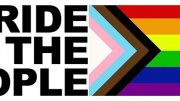By: Chuck Colbert/TRT Reporter–
In a move affirming of gays on campus, officials at University of Notre Dame said they would recognize an organization for LGBTQ students — a first for the school.
News of the decision came on Wednesday, Dec. 5, in a press release and comes after a five-month administrative review process and after a decades-long push for a self-governing student club or GSA, a gay-straight alliance.
More than a dozen times and over the same number of years and more, Notre Dame has refused to create a university-recognized student group for gays. Against that historical backdrop, the decision on the South Bend, Indiana, campus is considered a breakthrough, especially given the iconic school’s Catholic character and identity.
In announcing the change, Notre Dame also said it would expand support and services for LGBTQ students, initiating a new advisory committee composed of undergraduate and graduate students, faculty, and staff to provide guidance to the vice president for student affairs on questions, concerns, and needs of LGBTQ identified students.
And Notre Dame will hire a student development professional, a full-time staff member who will oversee the new student organization and programmatic activities.
In all, the response on campus and beyond has been positive, if not enthusiastically so, even as some alumni voiced skepticism and guarded optimism.
Students react
Current students involved in the efforts could not be happier or more enthusiastic.
“It’s a pretty significant change, given Notre Dame’s reputation as the face of a Catholic university,” said openly gay senior Karl Alexander Abad of Fullerton, Calif., during a telephone interview.
“I foresee a lot more student involvement here with the change,” he said.
Another student leader who participated in conversations with student affairs and school administrators was straight ally, junior Alex Coccia of Columbus, Ohio.
Coccia was key player in the 4 to 5 movement, the largest coalition for LGBT rights at Notre Dame in history, which, last year, brought together students, faculty, staff, and alumni in a unified way to tell the administration that they were not doing nearly enough to serve LGBT people in the university community. In fact, social media, like Facebook, raised the profile of the 4 to 5 movement well beyond South Bend.
“I am very excited about it,” he said, referring to approval of an officially recognized student organization. “It has a lot of potential and students are excited. Ultimately, having that passion and effort are going to make it successful.”
A name for the organization has not yet been selected.
The student group is not a club and not a political advocacy association. Rather, it is an organization open to all students who will elect officers.
Designation as an organization holds some significance insofar as the student group will have an advisor appointed by the office of student affairs. Clubs chose their own advisors.
Another difference is that student organizations must seek approval from student affairs to change their constitutions. Clubs can change their constitutions whenever they wish as long as they follow rules in the governing document to do so.
During a telephone interview Coccia said designation of the new group as an organization, on the same par as student government, student union, the yearbook, for examples, raises its visibility and status on campus even as it gives administrators tighter oversight and control.
While Notre Dame has hundreds of clubs, its number of designated organizations is much smaller.
“That’s good for questioning students, he said, “because it will be easier for them to find the organization,” which will also be permanent.
“It’s also good for prospective students because Notre Dame has been on GLBTQ unfriendly lists before,” said Coccia. “They may want to come to Notre Dame now that the university has a commitment to them.”
Other universities have done it first
Still, Notre Dame lags behind other Catholic colleges and universities as any number of them offer legal protections on the basis of sexual orientation and gender identity, and/or allow self-governing LGBT student groups, including her sister school St, Mary’s College, Boston College, Georgetown University, DePaul University, Santa Clara University, and Easton, Massachusetts-based Stonehill College, among others.
In September, trustees at Stonehill approved adding “sexual orientation” to the school’s non-discrimination policy, with the added proviso the college not be asked to do anything that would run contrary to beliefs and teaching of Catholicism.
Policy reversed
The move is significant insofar as it reverses a long-standing policy as old as 15 years.
Notre Dame and Stonehill were founded and remain affiliated with the Congregation of the Holy Cross, a religious order of men.
Better yet, Georgetown and DePaul have LGBTQ resource centers. A little more than a year ago, Georgetown’s center received a $1 million gift to fund an LGBTQ life initiative.
With a new approach on LGBTQ issues, one characterized by more openness, inclusion, trust, and collaboration, Notre Dame outlined its thinking in a six-page document entitled “Beloved Friends and Allies: A Pastoral Plan for the Support and Holistic Development of GLBTQ and Heterosexual Students at the University of Notre Dame.”
The pastoral plan relies on Catholic Church doctrine and teaching on human sexuality and marriage. The pastoral framework cites the Catechism of the Catholic Church, writings from the US Catholic Conference of Bishops, and natural law theory. Accordingly, Notre Dame’s plan repeatedly holds out chastity as a theological virtue, along with the cardinal virtue of justice, as guiding principles, along with “respect, compassion, and sensitivity” for all.
While calling students to chastity, the plan, citing the Catechism, specifically reminds gays that “homosexual persons are called to chastity” and to “friendship” and should cultivate “the virtues of self-mastery that teach them inner freedom.”
“Chastity appeal” explained
Ultimately, chastity has different meanings for straights and gays. The church holds out sexual intimacy in opposite-sex marriage and family life for non-gays. But chastity for gays requires mandatory life-long celibacy. Same-sex marriage is not a sacramental option, according to church teaching, which also speaks of homosexuality as an “objective disorder” and “intrinsic evil.”
Historically, in considering anything LGBTQ, Notre Dame has a longstanding practice of holding out church teaching by repeatedly singling out gays for chaste living, which seems to imply that, for whatever reason, gays are somehow more prone to non-chaste behavior than non-gays.
Below the surface seems to lay an offensively stereotypical operative equation — gay equals sexual activity. In other words, being gay is all about sex.
Therein lies a rub for students and alumni who voiced skepticism and criticism.
As Notre Dame senior Michael O’Brien of Strongsville, Ohio, (suburban Cleveland) explained, “In terms of the call to chastity, I have frequently been upset by the double standard Notre Dame had used to justify exclusion of the GLBTQ community,” he said in e-mail correspondence through Facebook.
O’Brien continued, “The GSA [Gay/Straight Alliance] supposedly would lead too many LGBTQ students to hook up, but speed dating, dorm dances, and Hip Hop Night apparently never cause straight students to act immorally.
“There was also always concern that a GSA would need to be heavily regulated to make sure it was in line with Church teaching. However, this standard is rarely ever applied to other campus organizations.
“The administration never criticizes the Right to Life Club for not campaigning for the abolition of the death penalty. College Democrats and College Republicans frequently promote candidates with un-Catholic stances on issues.
“Why would a GSA be held to a higher standard?
“I see this disparate treatment as a tacit distrust of the university in the LGBTQ community that somehow they are more prone to sin than the rest of the student body.”
Added a 2011 Notre Dame alumna Grace Loppnow on Facebook, “Obviously … we’re supposed to be chaste, and when other student clubs are proposed, chastity isn’t an issue that is explicitly addressed. Do you think the Scrabble Club’s application had a response that said, ‘We’re all called to live chaste lives?’ I doubt it.”
Still, Abad said school administrators’ harping on chastity was “there to protect us from external forces that would have a detrimental effect on the student body.”
“I feel it was necessary,” he said, referring to Notre Dame’s incessant chastity appeal.
Abad may be onto something. Earlier this year, a conservative Notre Dame alumnus watchdog group, the Sycamore Trust, voiced reservations about the possibility of an officially authorized gay student group.
“University recognition and support of a homosexual club would be deeply objectionable for even more fundamental reasons,” they wrote on their Web site. “It would give grave scandal damaging to the Church, to the University, to students, and to other Catholic institutions and would establish a potential source of serious mischief within the school.”
Notre Dame’s call-to-chastity strategy is apparently working. The Fort Wayne-South Bend Catholic diocese issued a statement in support of the school’s decision.
Said Bishop Kevin Rhoades, “The University of Notre Dame clearly affirms its fidelity to Catholic Church teaching on human sexuality by affirming that sexuality is ordered to the conjugal love of man and woman” and that “the deliberate use of the sexual faculty, for whatever reason, outside of marriage is essentially contrary to its purpose.”
Church on homosexuality
The bishop’s statement prompted an observation from a columnist for the National Catholic Reporter.
“The Church’s theological reflection on homosexuality is inadequate at the moment, usually crammed into the worldview that existed for a very long time that assumed that the sexual activities of gay people were the perverse acts of straight people,” wrote Michael Sean Winters on Dec. 6. “But, in the past forty or fifty years, it has become obvious that homosexuality is, in some sense, constitutional, it is not an aberrant choice made by a heterosexual, but an experience of self by a non-heterosexual. The language about ‘intrinsically disordered’ should be dropped entirely because it ran the danger of creating a new category of sin, not a vice like the seven deadly to which we are all prone, nor a specific act like stealing a car, but a disposition that was itself flawed and unique to certain persons.”
Meanwhile, current leadership from the Gay & Lesbian Alumni of Notre Dame and St. Mary’s College (GALA- ND/SMC) voiced its praise and appreciation. “Father [John I.] Jenkins [the schools’ president] and the Notre Dame administration took the right step this week in recognizing the needs of the GBLT students in the Notre Dame community,” said Jack Bergen of Walpole, Mass., a 1977 graduate, who serves as GALA’s vice president for programs.
“We should all be proud of the work that the students, faculty and staff courageously undertook to make this happen. I feel confident that a logical next step in this process will be to officially recognize GLBT alumni members of the community as well,” he added in e-mail correspondence.
“Even now GLBT alums are working with local alumni clubs to forge this alliance, so it is only a matter of time that this occurs across the broader alumni organization,” said Bergen.
A former chair of GALA was more skeptical. “I’m cautiously optimistic that this is at least a step in the right direction,” said Liam Dacey, who also expressed hope GALA could make inroads within the larger Notre Dame community.
“It will also be important for GALA to find a way to have a say in all this,” he said in e-mail. “We have to find a way to have a voice.”
Jerry Seaman, a 1964 gay alumnus of Evanston, Illinois, offered an assessment. “I think the acknowledgement by the university is great,” he said through Facebook messaging. “However, I’m suspicious about the university’s ‘control’ over how LGBT issues are ‘discussed.’ This ‘call to chastity’ language seems to be pretty strong.”
GALA–ND/SMC is an independent non-profit organization that is not affiliated with the Notre Dame Alumni Association.
Beyond the Notre Dame campus, reaction from leadership in LGBT Catholic advocacy organizations and of those who minister with gays and lesbians was upbeat.
Dignity/USA & New Ways Ministry praise the move
Marianne Duddy-Burke, executive director of the advocacy organization Dignity/USA, based in Medford, Mass., voiced praise for Notre Dame’s change of heart.
“They are doing what can be done at the moment,” she said, over the telephone, adding, “For a college of Notre Dame’s stature to produce a more inclusive environment for LGBT students at a time when [school officials] are being pressured to preserve the Vatican’s ideal of Catholic identity is encouraging.”
The executive director of New Ways Ministry said he, too, was pleased with Notre Dame’s pastoral approach. “I think that this decision is a victory for the courageous, informed, and persistent approach that students took on this issue,” said Francis DeBernardo of the Mount Rainier, Maryland-based gay positive organization.
“Supported by the faculty, the students, in fact, educated the administration about the application of Catholic social teaching, and, in the end, their arguments and their witness won the day. That is the best thing about this decision,” he said in e-mail.
DeBernardo also said not to worry about the school’s continuous appeal to chastity for all and mandatory celibacy for gays.
“I like how Notre Dame approached this issue through the lens of pastoral care,” he said.
“Pastoral care is about helping people develop their relationships with God and developing their consciences. The pastoral care people on campus and administrators should keep that uppermost in their minds when they are developing any programs for LGBTQ students on campus,” explained DeBernardo.
“Just because celibacy has been accepted by the Magisterium, it does not mean that faithful Catholics are going to live it out. Simply repeating the teaching in documents does not mean that it will be followed when people’s lives, experiences, prayers, and consciences are telling them something else,” he added.
Besides, the concerns of many LGBTQ Catholic youth, said DeBernardo and Duddy-Burke, are not at all about having sex. Rather, they concern coming out, family issues, religious identity issues, spirituality (Can I be gay and Catholic?), and dealing with harsh messages from religious institutions, particularly Catholicism.
Others matters that pop up, DeBernardo added, are questions such as “Does God hate me? Am I valued in this campus community? I’m being bullied: How do I respond? I’m afraid to make friends because they may reject me when they find out I’m gay. How can I develop a social life?”
____________
A 1978 Notre Dame alumnus, Chuck Colbert is a co-founder of GALA-ND/SMC and a former co-chair of the organization.
© Copyright. Chuck Colbert. All rights reserved.








